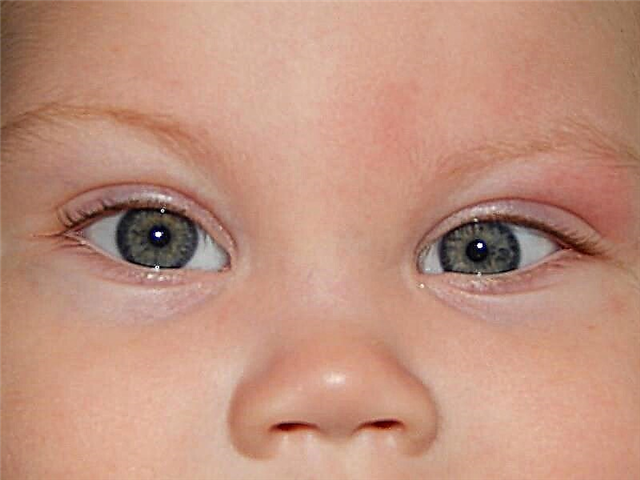Not so long ago, an unpleasant incident happened on a playground in one city. The kids did not share the toys among themselves, the parents intervened - as a result, everything turned from a banal quarrel into a grandiose scandal, even fists were used.
Here is a video, a conflict occurred on the playground between the parents:
It would seem that the situation is somewhat comical, but nevertheless the beatings were recorded, statements were written to the police, and the court's decision was already in the hands of all the participants in this incident. How to avoid such a situation in the future and teach your children to behave correctly in playgrounds? Let's look at it in order.
The kid has already grown up and now he wants to spend more time with his peers. But he still does not know how other children behave and does not know how to interact with them. An important task of parents is to teach their child to be friendly, kind and tolerant. In most cases, babies copy the behavior of their parents and quickly adopt their manner of communication.
Learning to avoid conflict

Consider a few typical situations that happen to every parent:
- Strangers reprimand your baby
Probably, you have heard more than once how strangers allow themselves to express their opinion about the behavior of your child: "Why are you getting into this puddle, you will get dirty?", "Don't cry like that, you see, your mother is nervous!" or "Do not pull your jacket lock, you will tear it off!" This behavior is allowed mainly by elderly grandmothers, who complain that children are allowed a lot in our time.
Remember, you are the main protector of your baby and therefore must always be on his side, no matter the situation. Nobody encourages you to swear or fight over it, but the child should feel your support. If you hear such words addressed to your child, you can simply laugh it off with the phrase: "He's inadvertently" or "He just plays like that", "We are in a good mood today."
Try not to bring this situation to conflict, but to discuss what happened alone with the baby and explain why the unfamiliar aunt spoke this way. It will be easier for him to accept criticism from you than from this aunt.
- You came to ride the swing, and they are already taken
Tell your little one that while the swing is busy, he can ride a slide or play in the sandbox. Reassure him with assurances that he will definitely ride them, but a little later. You can “take the line” and come back later. Or you can offer your child something on the swing in return if he gives up his seat, for example, play with your toy.
Be sure to explain to the kid that not only he wants to ride on a swing, there are other children, so everyone on the playground should respect each other and be able to give in. Patience and the ability to adapt to circumstances is an important part of raising a child.
- The kid got hit
 This is the most unpleasant situation while walking. Remember, no one is ever allowed to beat other people's children! Even if this happened as a result of a game or a clash between children, neither children, much less adults, are not allowed to hit your child. Let him be wrong a hundred thousand times and you yourself think that he is behaving badly - but only you can decide how to punish him for this.
This is the most unpleasant situation while walking. Remember, no one is ever allowed to beat other people's children! Even if this happened as a result of a game or a clash between children, neither children, much less adults, are not allowed to hit your child. Let him be wrong a hundred thousand times and you yourself think that he is behaving badly - but only you can decide how to punish him for this.
Speak out against such communication, hug the child to you and ask if it hurts a lot. Curb your anger, but be sure to comment on the one who hit the baby. You can say this: "You can't fight!", "Never behave like that again!" and “He (or she) just wanted to play with you, and you immediately fight. Let's play a game together so that no one fights. "
There is no need to take your child aside and say that his abuser is bad or harmful, that you no longer need to play with him. Children's grievances are short-lived, most likely, tomorrow they will become bosom friends.
- The child's toy was taken away
If such a situation has occurred and your baby has calmly reacted to it, you should not focus on this either. Pick up the toy when you get home. But in the case when your child is dissatisfied with this behavior, cries and asks you to help, you must solve this problem.
You can try to persuade him to "change" toys for a while, say: "Let Olya play with your doll, and you take her cubes." Most likely, Olya herself will not agree to such an exchange and will hasten to give someone else's toy. And if she doesn't agree? Then you can just go up to her and ask her to return it with the words: "Sorry, please, but this toy is my daughter and she doesn't want to give it to anyone."
It is not at all necessary to be good to other children by compromising the interests of your child. The toy belongs to your kid, and he himself has the right to dispose of it at his own discretion. If he doesn't want to give, let him not. Do not forget that the child is a part of you, so his desires should become yours.
- Your child selects toys himself
Other people's toys always seem more interesting, so kids want to play with them even more than with their own. What to do when your little one does the wrong thing and takes away their toys from other children?

Explain to him that you always need to ask permission from the owner of the toy, and without this, you cannot touch other people's things. Come up with him to the owner of the cherished toy (or to his mother) and ask politely: “Can I play with your toy car (a little train, a rubber elephant or a beautiful ball)? And we can give something else in return ”. Let your baby learn from you how to build relationships with other people.We also read:If the child is not friends with anyone: the fight against childhood loneliness
- The little baby bully himself
 If your child begins to behave like a real bully (pushing children, throwing toys at them, or sprinkling sand or dirt on them), in no case should you be idle. Toddlers are very sensitive to how adults react to their behavior, so your displeasure should be expressed very clearly.
If your child begins to behave like a real bully (pushing children, throwing toys at them, or sprinkling sand or dirt on them), in no case should you be idle. Toddlers are very sensitive to how adults react to their behavior, so your displeasure should be expressed very clearly.
Immediately reprimand him to stop behaving this way. You might say, "Would you like it to be showered with sand?" or “The kids don't like it when you do this. Do you want to play with them? Then behave yourself! " And in front of those whom your baby has offended, you need to ask for forgiveness and say that he did so accidentally and this will not happen again. It will be better if he does it himself, but without undue pressure from you. Be sure to read the article on how to teach a child to apologize - https://razvitie-krohi.ru/psihologiya-detey/kak-nauchit-rebenka-izvinyatsya.html
- Kids independently understand their relationships
You should not get involved in an argument between children when it happens in a calm manner. But if you feel that the tension is growing and the situation is heating up, try to direct their attention to a foreign object. For example, say: "Where did this dog suddenly run to?" or "Who can guess how many legs a turtle has?" The main thing here is to distract their attention from the quarrel.
No need to try to figure out who is right and who is wrong. Then you will have to take someone's position and thereby offend one of the kids. The best option is to invite the kids to go for a ride on a slide together or to see what ladybugs are climbing in the grass near the house.
Teaching your child to cope with difficult situations and make independent decisions, while not hurting or harassing other children, is the main task of parents. Will your baby grow up to be a capricious egoist or become the owner of a large number of friends, depends mainly on his upbringing.
We also read:
- 6 conflict situations on the playground: sharing toys without quarreling
- Taking the child out of the playground without hysteria: easier than it seems
- Important rules for the safety of the child in the playground - teaching the child to play correctly in the playground
- Intersection of interests or how to calm down little brawlers?
Video consultation
Psychotherapist Olga Popeyko on the air of the TV SOYUZ program “Learning to grow with love” from 10/03/2015.
How does the child behave on the playground? Playing peacefully, being attacked or an aggressor? How do parents respond to childhood conflicts? See the answers in this video:
What if your 2-year-old is bullying other children in the playground? If a boy hits or bites other children, offends girls? Of course, the parents of the child do not feel very comfortable in such situations. How to behave correctly? How to avoid conflict? What if you are angry with your little one? In this video, we will discuss this situation in detail:
Theses from the video:
0.38 First: tell your child how, in principle, to behave in conflicts.
Second, when the conflict deserves your attention.
There are two degrees of conflict: the first is when two children swear or scream with each other. How to behave in such situations?
1.20 First, hug and comfort the child. All reasonable actions make sense only when the child is calm. If another child's parents start reaching out to you at this time, just turn away and keep reassuring, and then tell the child what to do next.
2.06 It often happens that a child flatly refuses to apologize. What to do? We act out a situation so that the child understands how great it is that they apologized to him and offered another option. It's a wonderful feeling and a great experience.
3.28 Your children are fighting and you decide to intervene. When you get involved in a child conflict, always say “our children”. You kindly and decisively appropriate other people's children. “Our children quarreled, I will help your child, and you will help mine.”
4.20 Squat down, listen carefully to everyone. Ask: what did you want to do together? The challenge: to push the conflict forward, not to find out who is right. To keep them playing. Neutralize the conflict with the words "our children" and "we will help you figure it out." It is important to say that everything will be fine.
6.20 Your task is to make them laugh a little. And then say “let's play”. If you offer something interesting, they will quickly jump to it.
7.30 we often treat children as accessories. They beat my accessory here, break it, I'll go figure it out. Parental intervention at this level does nothing. If the child is in tears, warm him with your love. And then you can tell everything.
HOW TO RAISE A GENEROUS CHILD?
Each of us is selfish to some extent. But it's one thing when this egoism is healthy and correct, and quite another when it goes beyond and turns into excessive self-love and greed as a result. This is especially true for children. Sometimes, spoiled by loving parents who, of course, want only the best, our children show an acute unwillingness to share and think only about themselves and their own well-being. It would seem what to take from the child, because over the years his personality will change more than once. However, often children's greed over the years not only does not disappear, but progresses with incredible force. Let's fight this problem and raise our children to be generous and kind people. Well, some of our tips will help you cope with this - https://razvitie-krohi.ru/psihologiya-detey/kak-vospitat-rebenka-shhedryim.html
My child is greedy - what to do? Fight or resign? Reasons for childish greed
Everyone knows the picture: the kid does not want to give his toy to someone else, but the parents insist: “We must share! Are you a greedy man? Then no one will play with you! " So they do their child a "disservice" and destroy the nascent necessary personality traits - https://razvitie-krohi.ru/eto-polezno-znat/moy-rebenok-zhadina-chto-delat-borotsya-ili-smiritsya-prichinyi -detskoy-zhadnosti.html



